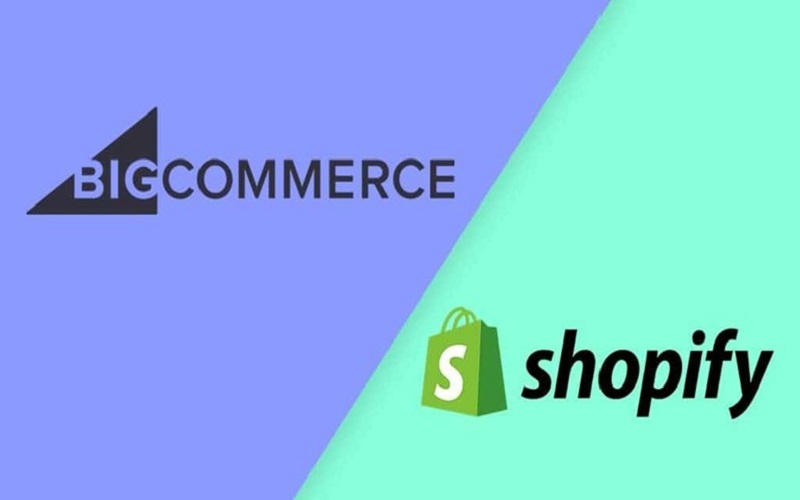Choosing the correct platform for your online business is critical in the world of eCommerce. BigCommerce and Shopify are two prominent solutions for online business owners. Both platforms include a variety of features and perks that might assist you in developing and growing your online business. We’ll compare BigCommerce vs Shopify in this post to help you make an informed selection for your eCommerce business in 2023.
BigCommerce and Shopify Overview
BigCommerce and Shopify are both prominent eCommerce platforms that provide a variety of features to assist you in developing and growing your online business. Because both systems are cloud-based, you won’t have to bother about hosting your website on your own server. Your website will instead be hosted on the platform’s server, saving you time and money.
BigCommerce was established in 2009 and is headquartered in Austin, Texas. With over 60,000 active stores, it has risen to become one of the world’s biggest eCommerce platforms. BigCommerce has a variety of capabilities, such as a drag-and-drop website builder, SEO tools, and payment gateway connections.
Shopify, on the other hand, was established in 2006 and is headquartered in Ottawa, Canada. With over 4,15 million active stores, it has risen to become one of the world’s most popular eCommerce platforms. Shopify has several features, such as a drag-and-drop website builder, SEO tools, and interfaces with prominent payment methods.
Ease of use
BigCommerce and Shopify both provide a variety of tools to help you establish and manage your online business.
BigCommerce provides a drag-and-drop website builder, making it simple to construct a professional-looking website without using BigCommerce development services or any coding knowledge. The platform also includes connectors with common payment gateways and delivery suppliers, making it simple to set up your online store.
Shopify also has a drag-and-drop website builder that allows you to quickly construct a professional-looking website. The platform also includes connectors with common payment gateways and delivery suppliers, making it simple to set up your online store.
Both systems are quite user-friendly and offer a variety of options to help you establish and manage your online business.
Pricing
BigCommerce and Shopify both provide a variety of price options to meet the demands of various businesses.
BigCommerce has four price levels, with the Standard plan costing $29.95 per month and the Pro plan costing $299.95 per month. Each subscription includes a variety of features, such as unlimited staff accounts, limitless goods, and a variety of connectors.
Shopify has three price levels, with the Basic plan costing $29 per month and the Advanced plan costing $299 per month. Each subscription has a variety of features, such as infinite items, a variety of payment ways, and a variety of integrations.
BigCommerce has more inexpensive plans, whilst Shopify has somewhat more expensive options for more complex plans. Nonetheless, both systems provide a variety of features to support their respective pricing plans.
Customization
While both systems allow for extensive customization, BigCommerce typically provides more leeway in this area. It’s rich features and open API enables developers and users to build unique solutions customized to their requirements. Shopify, on the other hand, provides fewer customization possibilities, which might be advantageous for people who want to set up a business fast and efficiently without becoming bogged down in complicated settings.
Processing of Payments
Shopify and BigCommerce both provide several payment processing options, including connection with prominent payment gateways like PayPal, Stripe, and Square. Shopify, on the other hand, has its payment gateway, Shopify Payments, which has cheaper transaction costs for users that utilize it. BigCommerce does not have its payment gateway, however, it does integrate with a variety of third-party payment processors.
Search Engine Optimization and Marketing
These systems have SEO functionality as well as interfaces with prominent marketing tools such as Google Analytics and Facebook Advertising. Shopify, on the other hand, is frequently commended for its built-in SEO capabilities, which are intended to assist customers in optimizing their online businesses for search engines. BigCommerce has good SEO skills as well, however, it may take a little more effort to optimize for search.
Conclusion
Both platforms offer advantages and disadvantages, and the best option will rely on your individual needs and goals. Shopify may be a better option if you want a platform with more design flexibility and sophisticated marketing features. BigCommerce may be a better alternative if you want a platform with comprehensive shipping and tax options, or if you intend to sell across several channels.




